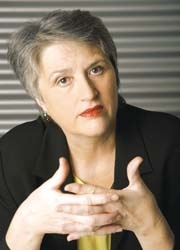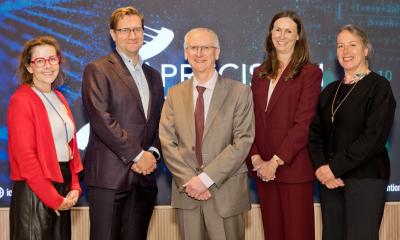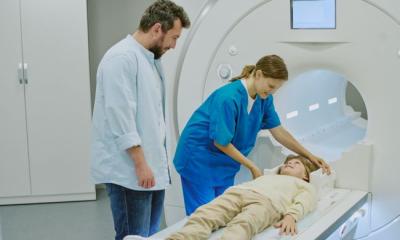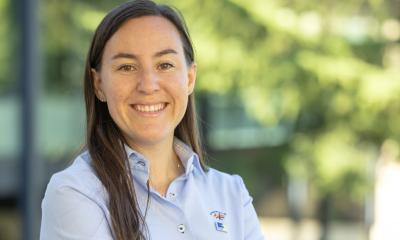Austria's ground-breaking ion-therapy and research centre
From 2014, MedAustron expects to treat 1,200 cancer patients annually
Not long after the first earth was moved on a site in Wiener Neustadt (Vienna's Newtown), in the County of Lower Austria, and tests were carried out to ensure the long-term stability of a particle accelerator and weighty equipment in treatment and research facilities, we spoke with Professor Ramona Mayer, Medical Director at EBG MedAustron GmbH, about the firm's planning and future operation of the MedAustron Centre for Ion Therapy and Research.

‘MedAustron was conceived as a Treatment and Research Centre in cooperation with all Austrian university hospitals and departments for radiation oncology,’ Professor Mayer explained. ‘The Centre will include a circular accelerator, radiation treatment facilities for medical use, with accompanying biological and physical radiation planning, as well as diagnostics and radiation facilities for non-clinical, fundamental research.’
Clearly a project of this size presents an enormous challenge. Is it supported by other organisations?
We have gained two important, international cooperation partners. On the one hand there is the European Organisation for Nuclear Research (CERN), in Geneva, which shows that fundamental research also plays an important part in the MedAustron project. On the other hand, we also closely cooperate with the Italian Centre for Oncological Hadron Therapy (CNAO). The CNAO together with the Italian Institute for Nuclear Research (INFN) has already planned and built a facility similar to MedAustron in Pavia. We can therefore benefit from their experience in the practical implementation and operation.
How is the project financed?
First we planned a public-private partnership. However, for various reasons this model did not work. Luckily, the politicians in Lower Austria decided to promote the areas of research and development more specifically, which is why the state parliament granted MedAustron a credit guarantee of 120 million euros. Added to this are 46 million euros from the state, i.e. the Republic of Austria, and Vienna’s Newtown is also participating financially — it provided the land free of charge. The rest is funded through venture capitalists.
Are the plans on target?
Yes, absolutely. At the end of last year the first soil samples were taken at the future building site to advance the technological planning of the buildings. The next hurdle, at a bureaucratic level, is an environmental impact assessment, which is to be submitted this summer. If everything goes to plan building can start in the autumn of 2010. About three years later we hope to start the test phase of running the centre, with a target to treat the first patients in 2014.
Will it be possible to utilise the accelerator for research as well as patient treatments on a daily basis?
Our objective is to do both, so we will operate a multi-shift operation. From 6:00 am to 10:00 pm the particle accelerator will be at the exclusive disposal of patients. We will build the facility in a way that radiation will either be directed into one of the three treatment rooms or into the research room, where the scientific studies will be carried out after 10:00 pm. Weekends and Bank Holidays will also be reserved for the researchers.
Which illnesses benefit from proton therapy?
Basically proton therapy is suitable for all deep-lying tumours where the surrounding tissue must be spared. The German Society for Radiation Oncology (DEGRO) has compiled a list of indications. Of course you always have to keep an eye on the eligibility for reimbursement of the treatment. Our strongest wish is to be able to offer proton therapy to all patients and to prevent a two-class medical system.
How many will the centre employ?
At full capacity we hope to treat 1,200 patients a year at MedAustron. About 90% of these will be treated as out-patients. Therefore the size of this department will be correspondingly large: around 100 staff, including doctors, medical physicists and nurses and so on, will look after the medical side of the facility.
The University of Applied Sciences, in Vienna’s Newtown, is offering a new, English-speaking course on ion-radiation therapy. This training, referred to as Med-Tech, will serve to qualify radiation technologists who already have the Bachelor or Master’s degree. Although we have the specific requirements of our centre at the back of our minds the Med-tech course also complies with international standards.
01.05.2009





